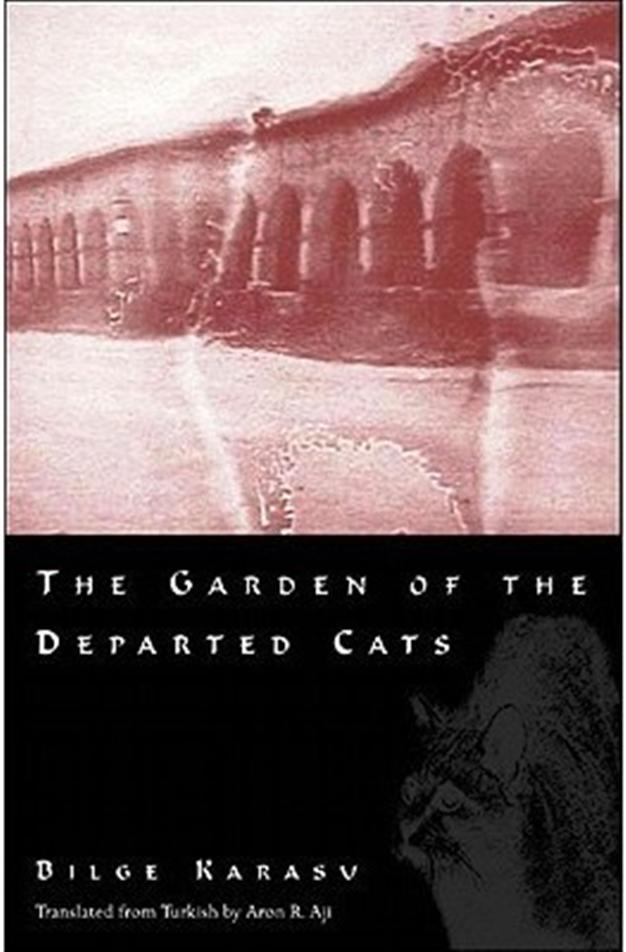'The Garden of the Departed Cats' by Bilge Karasu
William Armstrong - william.armstrong@hdn.com.tr
 'The Garden of the Departed Cats' by Bilge Karasu, translated by Aron Aji (New Directions Books, 1991/2003, 25TL, pp 256)
'The Garden of the Departed Cats' by Bilge Karasu, translated by Aron Aji (New Directions Books, 1991/2003, 25TL, pp 256)
“Understanding the whispers takes a difficult process of deciphering, like reading hieroglyphs.”
So says one of the twelve fables included in Bilge Karasu’s unique 1991 work, “The Garden of the Departed Cats.” The sentence comes early on, but the reader will likely find themselves nodding in recognition. From the very start, this is a work of cryptic, mysterious riddles, which leaves it for the reader to pick up the pieces and identify the thematic echoes throughout, accepting that much will remain hidden. It makes for a sometimes frustrating read, but never a boring one.
The skeletal tale that runs through the book describes an unnamed narrator’s stay in an ancient Mediterranean city. There, he becomes enchanted by a local man who involves him in an archaic game of human chess, a tradition upheld in the town every 10 years. An unsettling, slightly sinister undertone runs throughout this narrative, mirrored in the fabulistic, head-scratching fairy tales with which it is interwoven, where ordinary laws of cause and effect are disturbingly flexible. A man catches a fish, which in turn “catches” him; another waits day after day for a bus that never comes; a trapeze artist has premonitions of when his fellow performers will die; a traveling monk has a terrible stoat-like creature attached to his stomach, which feeds for years on any person it sinks its claws into; a scientist experiments with an exotic “red salamander” plant that renders people unable to lie. Each is ostensibly independent, but as they progress you gradually identify the connections across the stories. As a reader, you begin to find yourself approaching the book as if it’s an elusive puzzle that has to be put back together, or perhaps as if it’s the game of chess in the central narrative thread.
In the penultimate chapter, Karasu writes about the inherent inequality of the “hunter-prey” nature of romantic love, and of his own stumbling failures in one of life’s “most important undertakings.” Indeed, all of the preceding tales reflect, however indirectly, an overwhelming sense of frustration in pursuit of apparently unattainable love. Likewise, in much the same way as another book from the author recently published in English, “A Long Day’s Evening,” the homoerotic undertone is suggested in only the most oblique way throughout. I’m not a great fan of using biography to read back into works of fiction, but Karasu himself encourages us to do so in the closing section of the book, (and anyway I had space to fill here).
Riddles are described at one point as “a ball of yarn made up of dreams, tangling up as they unroll,” and I’ll freely admit to having probably not fully grasped the nuances of all the tales included in “The Garden of Departed Cats,” or the intricate paths that cross between each of them. This multi-layered book requires an adventurous reader, willing to do much of the hard work for themselves. It will probably exasperate as many people as it engages, but I’ll sit on the fence and say it did both in equal measure.
Notable recent release
‘Antisemitism and Conspiracy Theories in Turkey’ by Rıfat N. Bali
(Libra Books, 90TL, pp 418)
William Armstrong,
 'The Garden of the Departed Cats' by Bilge Karasu, translated by Aron Aji (New Directions Books, 1991/2003, 25TL, pp 256)
'The Garden of the Departed Cats' by Bilge Karasu, translated by Aron Aji (New Directions Books, 1991/2003, 25TL, pp 256)